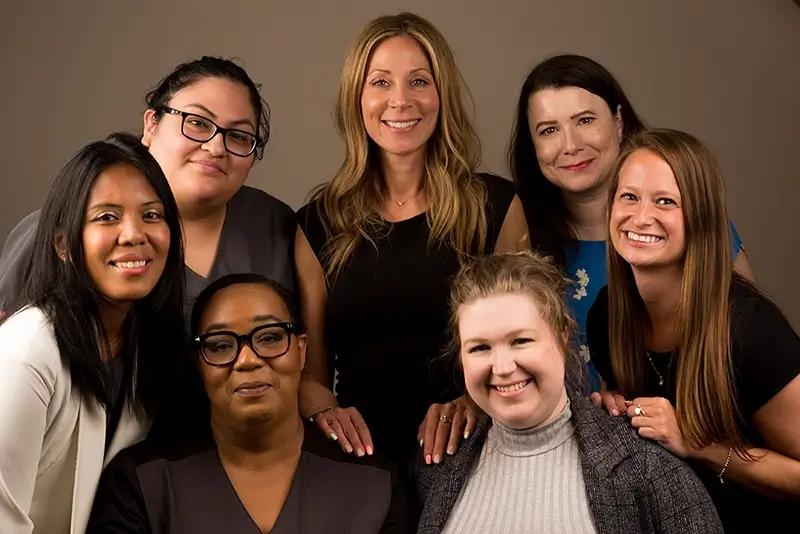High-Frequency Hearing Loss: The First Voices You Miss
|
Jill Black, AUD
|
Oct 30, 2025
You may have noticed that you sometimes miss the softer, higher-pitched voices of your loved ones or colleagues.
Whether it's your grandchild sharing their latest adventures, your wife's gentle reminders at home or those crucial comments during team meetings, you deserve to hear every word with clarity.
High-frequency hearing loss challenges often make it harder to listen to women’s and children’s voices first. If you’re struggling to hear your family and loved ones, taking early action to protect your hearing can ensure that you’re hearing the people in your life you love most.
Why Some Voices Are Harder to Hear
You might wonder why you seem to catch every word spoken by a man at the dinner table, yet struggle to catch the subtle inflections in a woman’s speech or a child’s excited chatter.
The answer lies in the natural differences in pitch.
Women’s and children’s voices tend to be higher-pitched, which means they produce higher-frequency sounds. Over time, especially due to aging or exposure to loud noise, your ears may lose sensitivity to these higher frequencies.
High-frequency sounds, such as the sharp “s,” “f,” “t” and “sh” sounds, are often the first to be affected by hearing loss. Because these sounds contribute so much to understanding speech clarity, missing out on them can make conversations feel incomplete.
By recognizing these early signs of hearing loss, you benefit from the opportunity to seek professional help before it affects your overall quality of life.
Everyday Situations Where Hearing Challenges Affect Your Life
You’ve likely experienced moments where the words shared by your loved ones seem to vanish into the background. Consider these everyday scenarios:
A Child’s Story: You might find yourself asking your kids or grandkids for repetitions or nodding along without truly engaging in the conversation. This not only affects your relationship with the child but also leaves you feeling isolated from their world.
Conversations at Home: Do you have to ask your spouse several times to repeat what was said, especially when soft-spoken phrases are delivered? The higher-pitched tones, which are essential for emotional expression, can easily slip away as your hearing diminishes.
Business Meetings and Group Discussions: At work, you want to be confident that you can follow every detail during discussions. When subtle high-frequency nuances become difficult to hear, you might miss out on the important cues that drive effective communication. This can affect your performance and leave you feeling disconnected from your team.
Social Gatherings: Whether it’s catching up during family gatherings or talking to friends at a dinner party, background noise and group settings can exacerbate the challenge of hearing high-frequency voices.
You benefit from improving your hearing health so that you can participate fully in every conversation, no matter who you’re talking to, and stay connected with the people you love and cherish.
Why Early Action Matters
You deserve to maintain fulfilling relationships both at work and at home. Untreated hearing loss doesn’t only affect what you hear – it can also significantly impact your emotional and social well-being.
When you struggle to catch certain words, both you and those around you might feel frustrated. This frustration can lead to misunderstandings and, over time, can strain your relationships with friends, family and colleagues.
When conversations are muddled, the connection you have with loved ones can suffer. Communication is the foundation of all relationships, and you can rest assured that a professional hearing assessment will help preserve these essential bonds.
In your professional life, missing out on cues during meetings or important details in conversations may affect your overall work performance. Taking the time to address your hearing concerns now may lead to improved confidence and effectiveness in your job.
Continuous hearing challenges can lead to social withdrawal and feelings of isolation. Addressing these issues early not only improves your hearing but also supports your overall mental and emotional health.
How a Comprehensive Hearing Assessment Can Help You
You benefit immensely from a professional approach to hearing care. Rest assured that with our team of hearing health experts, any consultation is tailored to your personal needs.
Here’s what you can expect from a comprehensive hearing assessment:
Detailed Evaluation: You will receive a thorough evaluation that identifies even the subtle signs of high-frequency hearing loss. This ensures that no detail is overlooked, and you can understand how your hearing is changing over time.
Personalized Treatment Options: You benefit from expert guidance on how to improve your hearing. Our team is committed to finding the solution that’s right for you.
Focus on High-Frequency Enhancement: Modern hearing aids are designed not only to amplify sound but also to enhance the clarity of high-frequency speech. Technology catered to your hearing needs can reconnect you with those vital conversations where higher-pitched voices might otherwise be lost.
Ongoing Support: You deserve to feel supported every step of the way. Regular follow-up appointments ensure that your devices and treatment continue to meet your evolving needs, no matter how they change.
Don’t Miss a Moment
You deserve to keep every conversation, every word of laughter and every phrase of love within your reach. Book your hearing assessment today and start hearing life fully again.
Questions or concerns? Feel free to request a callback to get in touch, or call us at 905-791-2203 to talk to a member of our team.
You owe it to yourself and your loved ones to invest in clarity, connection and confidence in every conversation!




